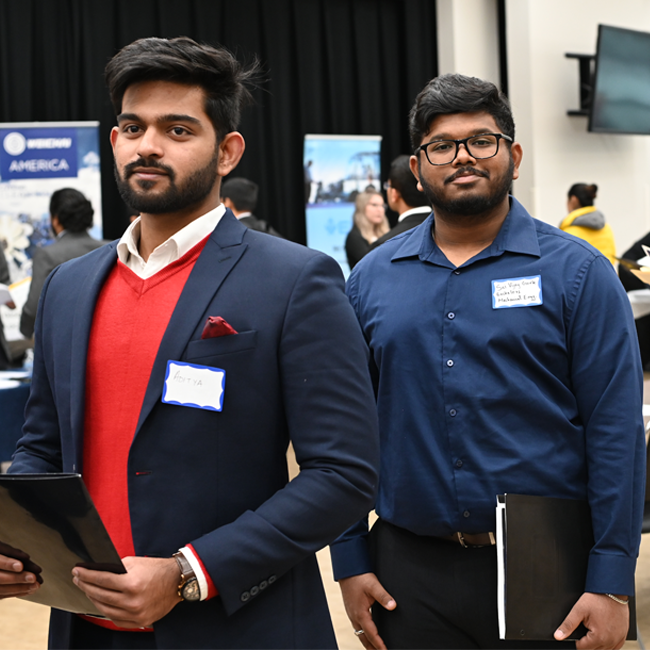Why Immigration Matters
Home / Why Immigration Matters
Outside of our Native Americans, everyone in Michigan can trace a story to migration–be it from the Deep South or Appalachia or from another country. The same migration stories that helped make Michigan a global economic leader with a high middle-class standard of living, are occurring today.
In fact, all of Michigan’s net population growth, for the last 20 years, has been driven by immigration. No U.S. major metropolitan area that has lost population since the 1960s has stabilized or reversed course without robust immigration.
Why Immigration Matters,
To In-Demand Industries
We bring a different perspective not only to the work we do but what we do in general. We have a different way of thinking. It’s good to have a different point of view. It makes the culture at work richer.
Berenice Lopez-Sanchez
Ford Motor Company
50%
Approximately 50% of all the graduate students in STEM fields studying at U.S. colleges and universities are international students.
70%
In fields critical to the Michigan economy, such as electrical engineering and computer science, 70% of the masters and PhD candidates are international students.
After five years of working in engineering with General Motors in her native Mexico, Berenice Lopez-Sanchez wanted to reconnect with the career for which she was trained – industrial design. After earning her MFA in integrated design at the College for Creative Studies, she wanted to stay in Michigan. But even with her strong automotive background, she was having trouble finding a new position. She sought out resources that could help, including Global Detroit’s Global Talent Accelerator and the Detroit Regional Chamber’s Let’s Detroit program.
New tools in hand, she landed a job at Ford Motor Company as an interaction designer. She works with customers to learn how they interact with the vehicle’s technology – how the user does things. Most of Berenice’s colleagues in her department at Ford are immigrants. They come from Mexico, Lebanon, Hong Kong, Haiti, and Eastern Europe.
Why Immigration Matters,
To Entrepreneurs
You stop assuming that the way things work is how they have to work.
Chening Duker
Goodpluck
25%
Twenty-five percent (25%) of Michigan’s high-tech companies were started by immigrant founders.
55%
Across the U.S., 55% of America’s startup “unicorns,” startups valued at a billion dollars or more, have an immigrant founder or co-founder.
Chening Duker is originally from Ghana and Cameroon in West Africa. After making his way to London, Duker enrolled in the University of Michigan to study computer science. Chening was previously a software engineer at the cloud-based security company, Duo Security, and before that, was a director at Shift, a nonprofit and creator space for students who want to collaborate and build out their ideas, projects and ventures along with others.
In 2020, Chening founded Goodpluck, a fresh produce delivery company serving Detroit. Goodpluck sources high-quality produce for less by working with local farms that are too small to sell to stores. Goodpluck then delivers produce baskets right to the doorstep of customers located in close proximity. Customer feedback has been extremely positive: In a recent survey, 100% of respondents said they would be disappointed if Goodpluck was no longer available. In 2022, Chening was accepted into, and completed, TechStars Detroit accelerator, run by JP Morgan.

Why Immigration Matters,
To Business and Employers
76.7%
More than three-quarters (76.7%) of Michigan’s immigrant population is working-aged (16-64) compared to 61.8% of Michigan’s U.S.-born population.
50%
Over 50% of the adult immigrant arrivals to Michigan since 2011 possess a four-year degree or more, roughly twice as college-educated as Michigan’s existing workforce.

Get Involved
The Michigan Global Talent Initiative collaborates with businesses, government, and communities to develop inclusive talent strategies. Join us to enhance Michigan’s prosperity through the contributions of its immigrant communities. Complete our contact form today!